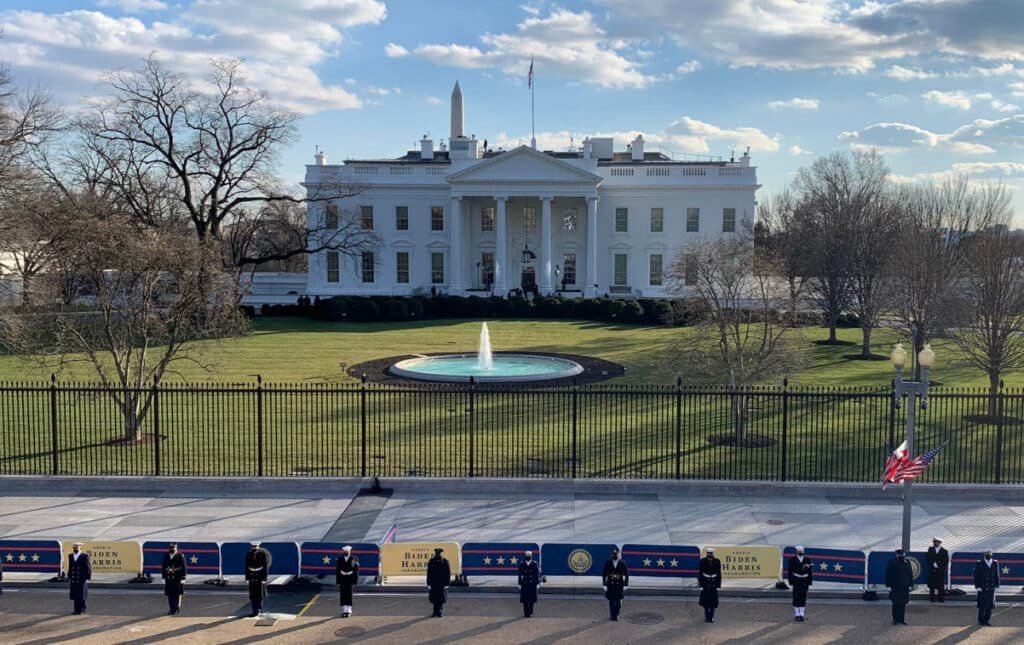How to Get Into Politics: Essential Resources for Aspiring Politicians
Starting a political career needs honesty, strength, and a strong will to help others. Aspiring politicians must have a good guide and the right tools to succeed in public service. They need to understand community problems and have the courage to solve them.
Being honest, brave, and open is key. Studies show 70% of people want their leaders to be transparent. Also, 60% of leaders say good communication builds trust and makes policies more accepted.
It’s important to really connect with the community. Research shows 55% of decisions are made with community input. Aspiring politicians should dive into community life and issues. They should also focus on diversity and inclusion, as 75% of voters support leaders who do.
Creating ways to hold leaders accountable is also vital. 80% of people trust government more when there are checks on power.
Key Takeaways
- A successful political career demands integrity, resilience, and ethical leadership.
- Transparency is key, with 70% of citizens wanting clear communication from leaders.
- Community engagement shapes 55% of public service decisions.
- Good communication boosts trust, as 60% of leaders agree.
- Leaders who value diversity and inclusion get 75% voter support.
Understanding the Basics of Political Involvement
Starting your journey in politics means learning the basics. It’s key to know how the system works and how you can help. This includes understanding the different ways to get involved.
Getting Started with Political Volunteering
Volunteering in politics is a great way to learn by doing. By helping out in campaigns or government projects, you get real experience. You’ll see how politics works up close.
Volunteers do many things like going door-to-door, making calls, and planning events. These efforts are key to helping candidates win and moving political causes forward.
Joining a Political Party or Campaign
Being part of a political party is another big step. It lets you support the issues you care about. Political parties have clear goals and values, making it easy to find people who share your views.
Being in a party opens doors to more ways to make a difference. You can help shape strategies and policies. It’s a way to feel part of something bigger and work towards common goals.
Exploring Different Political Roles
Knowing the different roles in politics helps you find where you fit best. There are many jobs beyond being an elected official. Roles like policy analysis, campaign management, and communications are just as important.
Each role has its own skills and insights. By exploring, you can find what you’re good at and what you enjoy. This helps you choose the right path in your political career.
Exploring these roles prepares you to handle the challenges of politics. It helps you become a versatile leader in the complex world of politics.
Building Essential Skills for a Political Career
To start a successful political career, you need to learn key skills. Public speaking, effective communication, and leadership are at the top. These skills help politicians connect with people, share their plans, and sway opinions. Leadership is key for leading efforts and making changes.
Public Speaking Skills for Politicians
Being good at public speaking is vital for politicians. They must speak clearly, with passion, and in a way that persuades. To improve, they should practice, work on body language, and learn to speak to different groups.
Leaders like Ronald Reagan and Barack Obama showed how powerful public speaking can be. They used their skills to win support and push for change.
Effective Communication Techniques
It’s important for politicians to communicate well. This means more than just speaking. It includes listening, showing empathy, and adjusting messages for different groups.
For example, Franklin D. Roosevelt’s “fireside chats” made complex issues simple for everyone. To get better at this, politicians must keep learning and adapt to new ways of communicating.
Developing Leadership and Collaboration Skills
Leadership is critical in politics. It’s not just about leading, but also working well with others. Margaret Thatcher once said, “Being in power is like being a lady. If you have to remind people you are, you aren’t.” True leaders inspire trust, make tough decisions, and work with both friends and foes.
Being a leader during tough times and solving disagreements while keeping a united goal is key. It makes a politician more effective and leaves a lasting impact.
Statistics show that 70% of Gen Z doesn’t want managerial jobs because of stress. There’s also a gap in leadership dreams between Gen Z and Millennials. Only 36% of Gen Z wants to lead, compared to 52% of Millennials. Aspiring politicians must use their public speaking, communication, and leadership skills to overcome these challenges and lead the country to success.
Utilizing Educational Resources and Scholarships
For those who want to be politicians, getting an education is key. Political Science Scholarships help by covering costs, so students can focus on learning. Scholarships360 has many scholarships for political science students, teaching them about governance and public policy.
Political Science Scholarships
Getting a scholarship can really help with your education. There are many types of scholarships, from government to private ones. For example, Florida’s program for private school funding has helped low-income students for 20 years.
This shows how important scholarships are for future leaders. They help students get a good education without worrying about money.
Continuing Education in Political Science
Learning doesn’t stop after college. Continuing Education in Political Science through advanced degrees or certificates is vital. It keeps politicians up-to-date with the latest in politics.
This extra education helps them deal with complex political issues. It’s like the U.K.’s long history of supporting education, starting in 1833.
Specialized Training Programs
Specialized Training Programs offer deep dives into specific areas of political science. The Experience International Relations, Politics and Leadership Academy is a great example. It has a 4.9 rating from over 850 reviews.
These programs offer classroom learning, Masterclass sessions, and challenges. They have small classes, so students get lots of attention. This helps them gain practical skills for a political career.
By combining scholarships, more education, and specialized training, future politicians are ready to lead. They have the knowledge and skills needed to make a difference. Investing in education is a way to grow personally and help our country’s future.
Networking and Building Relationships in Politics
Getting into politics is not just about knowing things and doing things. It’s also about having a strong network of people. This part talks about the importance of networking and making alliances to succeed in politics.
Importance of Political Networking
In politics, having good relationships is key to getting things done. Networking can lead to many chances, like getting endorsements or access to important info. Politicians need to talk well and connect with others to be effective.
“85% of successful leaders attribute continuous learning and coaching as key factors in their professional growth.”
Having a network, both within and outside your party, helps you move through the political world. It’s important to talk openly and involve stakeholders in your plans. A Harvard Business Review study found that 58% of companies struggle with leadership because they don’t network well.
Strategies for Building Alliances
Being able to make and keep alliances is key to success in politics. To build alliances, find common goals and build trust. Leaders need to know the culture and politics of their allies to make sure everyone is on the same page. Here are some ways to build strong alliances:
- Continuous Learning: Keep learning and going to international conferences to stay informed.
- Effective Communication: It’s important to communicate clearly, which is even more so in diverse groups.
- Cultural Intelligence: Knowing about different cultures helps build stronger alliances.
- Scenario Planning: Being ready for different situations helps you respond quickly.
- Digital Networking: Using online tools to stay in touch and meet virtually is very helpful.
Leaders who get good at these strategies can build strong alliances. These alliances can lead to big wins in politics. Here’s a quick summary of what’s important in networking and building alliances:
| Key Elements | Actions | Benefits |
|---|---|---|
| Continuous Learning | Attend conferences, engage in coaching | Enhanced knowledge, strategic insights |
| Effective Communication | Transparent dialogue, stakeholder engagement | Improved collaboration, trust-building |
| Cultural Intelligence | Understand cultural contexts, adapt communication | Stronger cross-cultural alliances |
| Scenario Planning | Prepare for challenges, agile responses | Resilience, strategic foresight |
| Digital Networking | Utilize digital platforms, organize virtual meetings | Maintained connections in remote settings |
Strategic Campaigning and Fundraising
Grassroots campaigning is key in politics. It involves talking to people face-to-face, attending town hall meetings, and using social media. This helps build a strong volunteer base and gets your message out.

Grassroots efforts are the heart of any campaign. They focus on personal connections and values that matter to Americans.
Grassroots Campaigning Techniques
Grassroots campaigning uses local connections to build support. It includes hosting neighborhood events, joining local gatherings, and being active online. This approach builds trust and unity.
It shows a commitment to American values. It’s about real communication and listening to the community.
Campaign Finance Management
Managing campaign finances well is vital. It keeps the public’s trust. Keeping accurate records, reporting regularly, and following the law are musts.
Having strict financial controls makes sure money is used wisely. This transparency boosts credibility and shows our commitment to integrity.
Political Campaign Strategies
Using smart campaign strategies is important. Data analytics help target the right voters. This makes outreach more effective.
Strategic messaging through different media channels also helps. It makes sure our message is heard everywhere. These strategies prepare candidates for the political world, upholding American values.
FAQ
What are the essential resources for aspiring politicians?
How can one start getting involved in politics through volunteering?
Why is joining a political party important?
What are the different political roles one can explore?
How can aspiring politicians improve their public speaking skills?
What are some effective communication techniques for politicians?
How can one develop leadership and collaboration skills for a political career?
What are some scholarships available for political science students?
Why is continuing education important for aspiring politicians?
What specialized training programs are beneficial for a political career?
How critical is networking in politics?
What strategies can be employed to build strong alliances in politics?
What are grassroots campaigning techniques?
How should campaign finances be managed?
What are some effective political campaign strategies?
Source Links
- Online International Relations, Politics & Leadership Internships
- Ethical Leadership in Public Service: A Guide for Aspiring Leaders – FāVS News
- Defending American arts, culture, and democracy
- How to be a good and intelligent politician: A path to ethical and effective leadership –
- International Political Economy
- “If we stop producing regulations, we must strengthen Social Dialogue” – CEC European Managers
- ‘We’re the Outliers’: Ashley Rogers Berner on Public Funding for Private Schools
- Experience International Relations, Politics & Leadership Academy
- Global Leadership Strategies: Practical Advice for Emerging Leaders
- What It Takes to Lead in the Public Sector: Education and Experience – Nexus
- Washington DC Nonprofit Jobs – Find Your Next Career in the Capital
- Jobs board — The Communications Network














